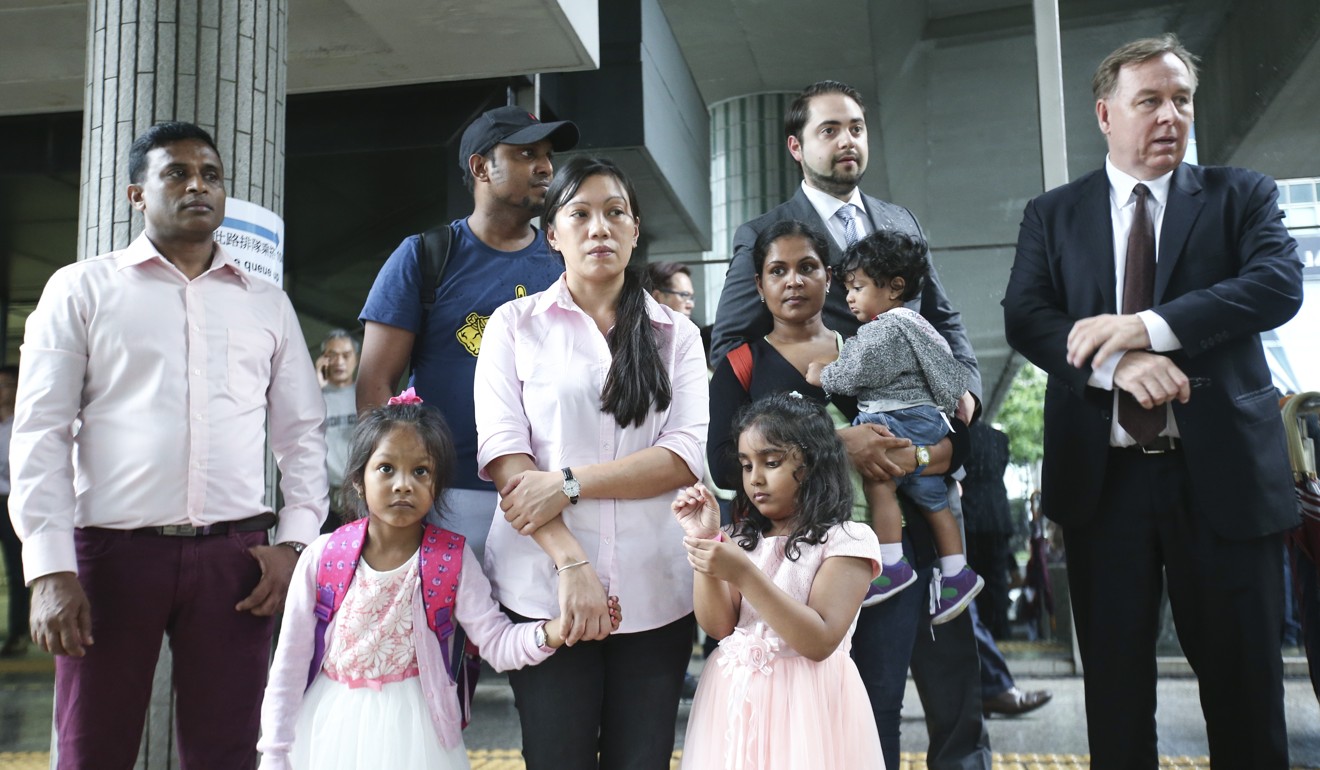
Legal aid scheme for asylum seekers sparks conflict of interest concerns
Hong Kong Bar Association tells members not to offer services to government-backed aid scheme, as it could breach code of conduct

Two Hong Kong lawyers’ groups have raised concerns over the fairness and format of a trial legal aid scheme for asylum seekers, with the Bar Association warning members that their participation could breach its code of conduct.
The Security Bureau revealed plans to launch the scheme to reduce the administrative work and costs of the screening of asylum applicants and increase the vetting capacity to 5,000 or more claims a year.
But the Bar Association and the Law Society, which have jointly run a similar scheme with public funding since 2009, the Duty Lawyer Service, expressed concerns over the new programme, as it will be run by the bureau in charge of the vetting policy.
Hong Kong is obliged to screen protection claims on grounds such as torture, inhuman or degrading treatment or punishment, and persecution. The Immigration Department, which is under the bureau, is responsible for screening. It received between 3,638 and 5,053 claims per year over the past three years and there were 8,956 outstanding claims as of the end of March.
According to the bureau, the government-funded pilot scheme will tap into the pool of eligible lawyers serving the existing scheme and serve as a supplement to meet the backlog of claimants, who will be assigned to one of the two schemes at random.
The existing scheme has 341 barristers and 162 solicitors and handled 14,328 claims by the end of April.
The bureau had held meetings with representatives from the existing scheme and the two legal professional bodies, which agree on the need to expedite screening.
But the Bar Council or the Bar Association’s executive committee has resolved not to recognise the pilot scheme, according to an internal circular the Duty Lawyer Service issued to its members on May 29.

“The acceptance of such works directly from the Pilot Scheme Office therefore may be considered as a breach of the Bar Code of Conduct,” the document seen by the Sunday Morning Post read.
In another document dated November 18, the Hong Kong Bar Association said it had “strong reservations” about the pilot scheme, noting potential conflict of interest.
“A decision vital to the well-being and interests of the claimant will be made by the responsible government department under the supervision of the Security Bureau, namely the Immigration Department,” the Bar Association said. “The structural and operational arrangements ... clearly attract criticisms of being apparently biased and lacking in independence and impartiality,” it read.
The vice-president of the Law Society of Hong Kong, Amirali Nasir, also said that “lawyers have expressed concern over the lack of information about the format of the scheme, insurance coverage, interpreters and other issues”.
Human rights lawyer Mark Daly echoed the concerns over the pilot scheme despite agreeing with the need to speed up screening.
“I don’t think that it is well thought out. Why start a rival parallel scheme? I would be concerned about its independence if it is administered by the Security Bureau as opposed to the Duty Lawyer Service, particularly given that the Duty Lawyer Service has built up some experience and is becoming more efficient,” Daly said.

He added there would be concerns over how the scheme would be perceived by the claimants and competition for resources.
He also did not think the new scheme could solve current problems, as delays were often caused by the decision-makers not scheduling timely interviews or failure to find interpreters.
Kenneth Chan, the chief court liaison officer for the administrator of the Duty Lawyer Service, said that the office’s scheme was “neutral” and would not comment on this matter.
Transparency urged on how Hong Kong handles sanctuary claims after those who sheltered Edward Snowden see applications rejected
But he said the service’s statistics speak for themselves – the Immigration Department referred only two torture claim cases per day to them at the very beginning of their operation in 2009 when they had only seven staff members.
Now he said his office handles 13 new cases every day and has 72 staff members.
But a Security Bureau spokesman said the existing scheme could not cope with their goal to boost the screening capacity to 5,000 cases a year, which is around 23 cases a day.
He added: “There is no issue of fairness as the Security Bureau does not have any role in the screening of individual claims.
“Also, there will be proper functional segregation between the policy division responsible for immigration matters and the office operating the scheme.”